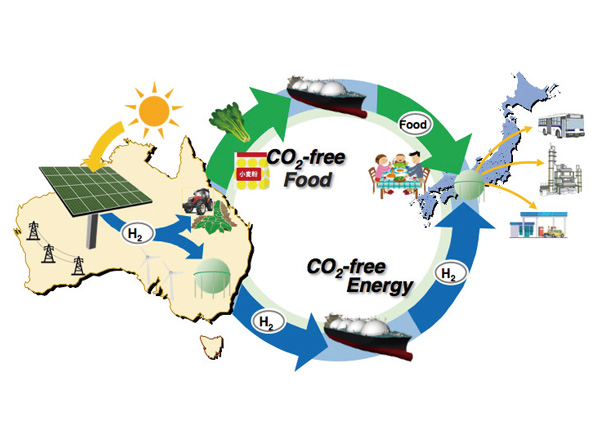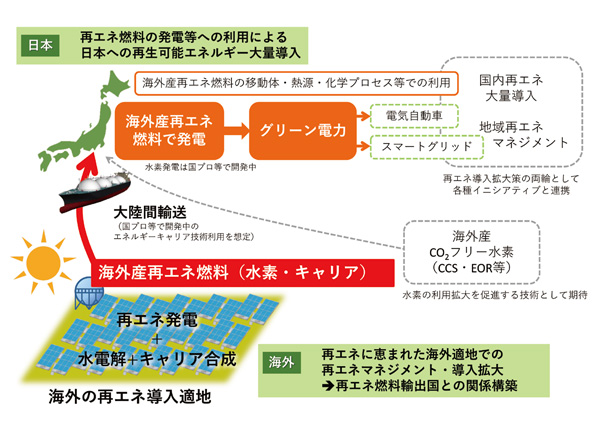- HOME
- Research
- Research Category
- A Global Network of Renewable FuelsSocial Cooperation Research Departments
A Global Network of Renewable Fuels
Social Cooperation Research Departments
Realize the world's first renewable hydrogen society
We at the University of Tokyo aim to create an environment for research and education in which a diverse range of people can demonstrate their abilities through strengthening social and international collaboration. We also believe that universities should be the birthplace of the societal change needed to achieve both Sustainable Development Goals (SDGs) and economic growth. In particular, in order to achieve multiple SDGs at the same time, it is especially important to deliver universal sustainable energy.
In the Japanese government’s Basic Hydrogen Strategy, CO2-free hydrogen is assumed to be produced from renewable energy sources. Considering the restrictions on the potential to introduce renewable energy in Japan (sunlight hours, installable area, power grid, uneven distribution of consumption areas, etc.), we believe it is essential to build a ‘global network of renewable fuels’, in which hydrogen is produced and imported into Japan using renewable energy sources such as solar and wind that can be obtained overseas at low cost and in large quantities. Already in Australia, governments and leading companies have launched a project to export renewable fuels, advocating the removal of coal-fired power and the transformation of their industrial structure. Given the timing of this global movement, it is appropriate for Japan, a country with developed hydrogen-related technologies, to proceed with industrial-academic-governmental collaboration efforts regarding the import of renewable hydrogen.
One activity of this Social Cooperation Research Unit is to proceed with the techno-economic analysis of renewable hydrogen production plants, referring to the results of hydrogen production demonstration projects currently underway both domestically and overseas. We will contribute to making the hydrogen import strategies by further advancing past research and expanding the target region to Southeast Asia and other regions. In addition, with the rapid increase in renewable energy, we will examine the evaluation of hydrogen production as a regulating force to maintain the stability of the power grid, from both technical and economic perspectives. Furthermore, we will conduct techno-economic analysis of the supply chain including transportation, storage, and utilization of e-fuels in addition to hydrogen as a renewable energy fuel, and study measures to reduce future production costs and carbon emission intensity.

Let's bring the Australia's sunshine to Japan

Target energy system
Cooperation Company/Organization
- ・ACTREE
- ・Kansai Electric Power Co.
- ・Chiyoda Corporation
- ・ENEOS Corporation
- ・JERA Co., Inc.
- ・Nippon Kaiji Kyokai (Class NK)
- ・Kawasaki Heavy Industries, Ltd.
- ・Sumitomo Corporation
- ・Nippon Shokubai Co., Ltd.
Member

Professor
Masakazu SUGIYAMA

Professor
Tatsuoki KONO

Professor
Michio HASHIMOTO
Laboratory Homepage
Tags

